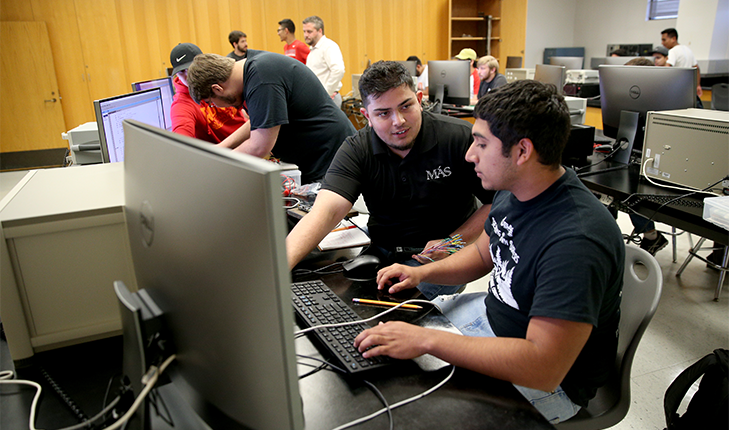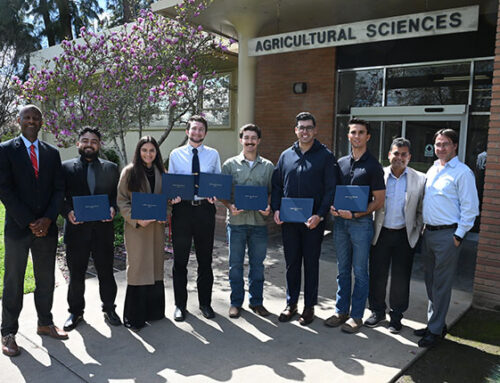Fresno State researchers and their students are looking for ways to fight health problems, to create secure communications and embedded systems and to support local businesses thanks to another record year of research grants and contracts to fund their projects.
The University received 356 grants or contracts for a total of $48.2 million during the 2020-21 academic year. That’s a 3% increase from the year before and places Fresno State among the top four California State University campuses for grants received this past year.
“Despite the pandemic, we once again broke the all-time record for grant awards. The staff in Research and Sponsored Programs have worked diligently, under challenging conditions, in support of our faculty to reach this milestone,” said Dr. James Marshall, dean of the Division of Research and Graduate Studies at Fresno State. “All involved, staff and faculty alike, are to be congratulated for yet another outstanding year of grant-supported scholarship.”
The grants varied in amounts and were awarded by nationally-known science and health institutions and government agencies for projects that will help benefit related industries and the San Joaquin Valley. Here is a look at some of the notable grants and contracts from the past year:
- $420,000 from the National Institutes of Health to chemistry professor Dr. Morgan Hawker, in the College of Science and Mathematics, who will lead research on “Controlling Naturally Derived Polymer Enzymatic Degradation: A Plasma-enhanced Chemical Vapor Deposition Approach.”
- $1.2 million from the National Institutes of Health to biology professor Dr. Karine Gousset, in the College of Science and Mathematics, to further support the fight against three major health problems plaguing society: persistent viral infections, neurological diseases and cancer.
- $1.25 million from the National Science Foundation to Drs. Lalita Oka, Kimberly Stillmaker and Arezoo Sadrinezhad in the Civil and Geomatics Engineering Department, Lyles College of Engineering, to increase the representation of women faculty members — especially underrepresented minority women — in the field of engineering.
- $378,002 from the U.S. Department of Defense to Drs. Hovannes Kulhandjian and Hayssam El-Razouk, electrical and computer engineering in the Lyles College of Engineering, for a secure communications and embedded systems laboratory.
- $99,384 Rural Business Development Grant from the United States Department of Agriculture to Eduardo Gonzalez, Office of Community and Economic Development, for the Huron Emerging Small Businesses program that will support the professional growth and development of 10 businesses in the City of Huron.
The grant from the Department of Defense will help create the new Secure Communications and Embedded Systems Laboratory in the Lyles College of Engineering.
“The primary goal of this project is to open new potential specialization pathways for underrepresented and first-generation students at Fresno State in emerging areas of high interest to the Department of Defense and the national economy,” Kulhandjian said. “Summer workshops will also allow high school students to be trained on simple applications of equipment to encourage them to join science, technology, engineering and mathematics (STEM) fields.”
The lab will provide an infrastructure for education and research in artificial intelligence, machine learning, cryptography and advanced communications systems using software-defined radios, secure communications, secure embedded systems and secure hardware. The lab will also investigate different types of attacks and propose solutions on how to overcome them.
“The new laboratory will have a significant impact on preparing and training our underrepresented students to conduct cutting-edge applied research and address security issues in the different layers of the communications protocol stack,” El-Razouk said. “We are situated in a region that is vital for the food supply chain of our nation and the world. With the advancement of smart agricultural and farming technologies that rely heavily on the Internet of Things, security issues will have more and more impact on this industry.”



